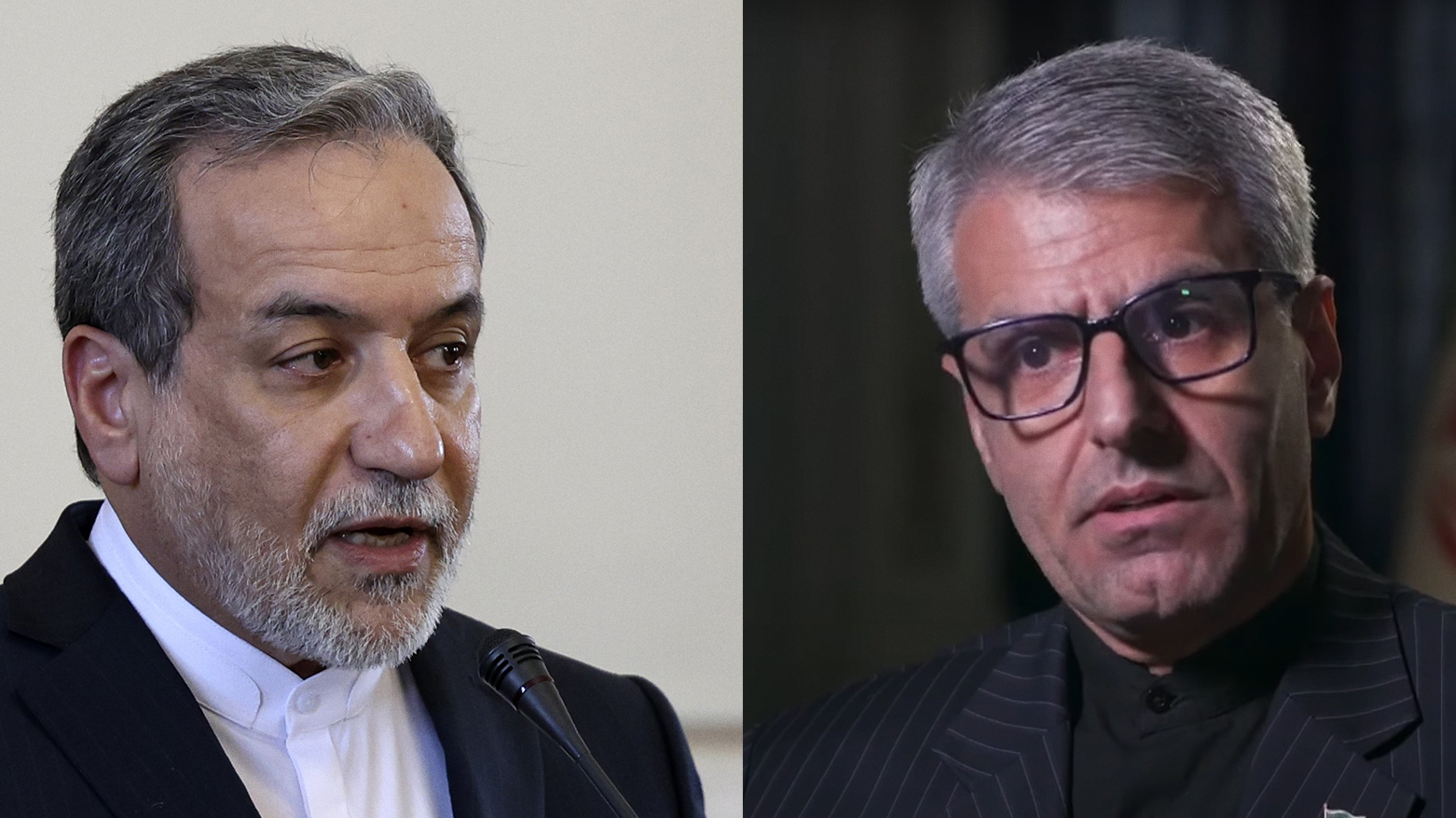Tehran Keeps Door to Talks Open, Demands U.S. Commitment Before Negotiations Resume
Iran signals cautious openness to diplomacy but vows firm defense after recent Israeli and U.S. strikes on nuclear sites. Officials stress U.S. must prove loyalty to talks while reaffirming Iran’s right to peaceful nuclear enrichment and readiness to respond decisively to any aggression.

By Kamaran Aziz
ERBIL (Kurdistan 24) — Iran’s top diplomatic officials have conveyed a nuanced stance regarding the prospects for renewed peace negotiations with the United States, while reiterating a firm resolve to defend its sovereignty against further attacks. This position emerges amid heightened tensions following recent Israeli and U.S. strikes on Iranian nuclear facilities, which Tehran describes as a blatant violation of its national sovereignty.
In a recent interview with Sky News, Iran’s Foreign Ministry spokesperson Dr. Esmaeil Baqaei emphasized that while diplomacy remains possible, Washington must first demonstrate genuine loyalty to diplomatic engagement.
“I think to put it in a nutshell, they have to show that they are really loyal to diplomacy. Diplomacy must not be abused or used as a tool for deception or for simply, a sort of psychological warfare against, their adversaries,” Baqaei said. He acknowledged ongoing indirect contacts facilitated through regional intermediaries, including Oman and Qatar, indicating that “diplomacy never ends.”
Addressing recent Israeli military actions, Baqaei underscored Iran’s preparedness to respond decisively to any further aggression. “Our strong military forces are ready for any such misadventure,” he stated, affirming, “For sure, we will respond. That’s what we’ve shown during the past two weeks. We showed our resolve to defend our nation, to defend our dignity with all force.”
Earlier, on July 1, Iran’s Foreign Minister Abbas Araghchi spoke to CBS News in a detailed interview outlining the impact of the recent attacks on Iran’s nuclear infrastructure and the country’s position moving forward. Araghchi confirmed that Iran’s nuclear facilities, particularly at Fordow, were “seriously and heavily damaged.” However, he emphasized that while the physical installations suffered, the technological knowledge and expertise underpinning Iran’s nuclear program remain intact.
“If there is this will on our part and the will exists there in order to once again make progress in this industry, we’ll be able to quickly repair the damages and make up for the lost time,” Araghchi explained.
Responding to questions about the possibility of Iran resuming uranium enrichment, Araghchi was unequivocal about the country’s right to pursue a peaceful nuclear program. “This enrichment is now a matter of national pride and glory,” he asserted.
He referenced a religious decree from Iran’s Supreme Leader prohibiting nuclear weapons, emphasizing that nuclear armament is not part of Iran’s security doctrine: “Nuclear weaponry is religiously forbidden and has no place whatsoever in our security doctrine.”
Araghchi also denounced the U.S. strikes on Iran’s nuclear facilities as violations of international law. “Nuclear facilities, regardless of where in the world they are, are immune to aggression, and waging attack on Iranian nuclear facilities is a flagrant violation of international law,” he said. He expressed surprise at the lack of condemnation from Western nations, stating, “It surprises me, however, that the European countries and the West at large, who feel that they are the flag bearers of international law and human rights, have failed to accept this simple truth and have failed to condemn such aggressions.”
On the question of renewed diplomatic talks with the U.S., Araghchi took a cautious tone. While acknowledging that the doors of diplomacy remain open, he said, “I don’t think negotiations will restart as quickly as that. And as we speak, we are in the era of, aftermath of a war. Sentiments are sky high. People are grieving for their lost ones. They’re mourning, and they’re angry with America and Israel. Anti-American and anti-Israeli sentiments are running high.”
He reiterated that the previous round of negotiations had ended with what he called “a betrayal of diplomacy” by the U.S., which had resorted to military action mid-talks, setting “a very bad precedent.”
Regarding the internal unity within Iran following the twelve-day war triggered by Israeli strikes, Araghchi highlighted an “extraordinary solidarity and unity between Iranians,” reflecting a strong national spirit despite political differences. “Under normal conditions, there are differences,” he said, “but it is in trying times that the Iranian nation reunites.”
On Iran’s military response during the recent conflict, Araghchi stressed that Iran acted in self-defense. “We defended ourselves honorably… We did not attack Israel. They attacked us, and our missiles were used to defend the country, and they proved their value,” he said, emphasizing that Iran’s missile program serves both defensive and deterrent functions.
In closing, Araghchi addressed the desire for peace among the Iranian people but emphasized the necessity of defense to maintain it. “You will not find anyone in Iran asking the government to remain silent or not defend itself in the face of aggression. Defense is part of peace. If we do not defend ourselves, we will not have sustainable peace.”
These statements from Iran’s senior officials come amid a complex geopolitical environment marked by ongoing conflict in the Middle East, continued U.S.-Iran tensions, and fragile diplomatic efforts mediated by regional actors. Both Baqaei and Araghchi convey that while dialogue remains theoretically possible, it is contingent upon tangible shifts in U.S. policy and behavior, alongside Tehran’s unwavering commitment to sovereignty and defense.